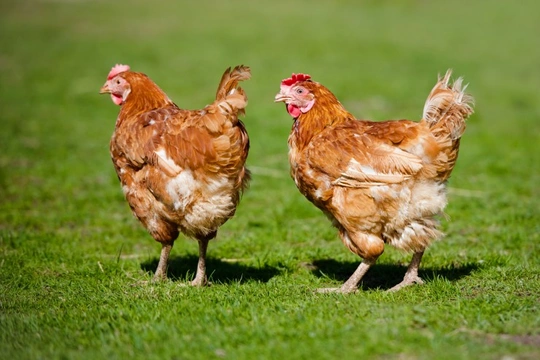
Can you feed human food and kitchen scraps to chickens?
Letting chickens run free around the place is great, especially if you've rescued some commercially bred hens. It's a wonderful feeling as you watch them and a cockerel or two busy themselves around the backyard or garden. They can be very efficient at keeping a lawn down too.
However, you need to keep an eye on just what your flock might be tucking into, and this is especially true when the summer really gets going because there are a few plants that can be deadly to chickens. But then the same can be said of the colder winter months when there's not so much around for chickens to eat!
One thing that many people who keep a few chickens as pets, or that aspire to doing so often envision is keeping a pot for scraps in the kitchen, and giving these to your chickens as a treat or to supplement their diet. This might seem totally natural and a good idea to both help to keep your food waste down and reduce the cost of your chickens’ feed; and indeed, this was commonly how chickens were fed in a large number of cases historically.
However, part of being a responsible chicken keeper means finding out about all of the rules and regulations that accompany keeping animals such as chickens at home, and ensuring that you do not fall foul (no pun intended!) of them.
DEFRA (the Department for the Environment, Food and Rural Affairs) actually dictates a range of common-sense rules for people who keep chickens when it comes to what they can be fed; and these rules apply to not only chickens kept commercially for their egg and meat yield, but also, chickens kept as pets in a small group by people with a little yard or garden.
In this article, we will look at the various rules and regulations that dictate what you can and cannot feed to chickens-and why they are in place. Read on to learn more.
What should chickens eat?
Keeping your flock healthy is of course very important, and an integral part of this means feeding them an appropriate diet that is safe for them, and that contains everything that they need.
Buying a complete feed such as chicken pellets that are the right type for your chicken’s age, condition and laying status is important, and generally, your chickens will get most of the protein and other nutrients that they need from this.
They also need to be given greens, such as cabbage, weeds and grass, as well as the occasional treat like mealworms, which chickens usually get very excited about!
Your birds also need access to clean, fresh water at all times, and grit too, something that is often overlooked.
Can you feed your chickens scraps?
Given that things like cauliflower and cabbage are appropriate to feed to chickens, many chicken owners automatically assume that giving their birds vegetable scraps from the kitchen and possibly, compost bucket is fine too-but this is not the case. As mentioned above, DEFRA have placed restrictions on what and how chickens can be fed, in order to ensure the health of all of the flocks in the UK, and the people that might consume their meat or eggs.
It is important that all chicken keepers make themselves aware of these things, and follow the DEFRA regulations-it is, after all, the law.
In simple form, the DEFRA regulations state that chickens of any type-commercially kept, pets, layers, non-layers, those intended to enter the food chain and those that are not-cannot be fed kitchen scraps and waste, even if you only keep a couple of chickens and have no intention of ever earing them or selling them.
The only exception to this rule applies to households that are 100% vegan, and that never have any meat or dairy products within the home (even if they are kept well away from anything fed to the chickens).
This means that you cannot feed scraps of any type-even vegetables that have not come into contact with any meat or dairy products-to your own chickens, and you cannot feed them such scraps from any other source either, such as commercial kitchens, even if said kitchens produce only vegan food.
Why are these rules in place?
By enforcing fairly strict rules such as those outlined above, DEFRA can help to protect the health of all of the chickens in the UK, including those entering the human food chain. As well as the obvious potential issues that feeding scraps in general can cause for people that eat the eggs or meat of their flocks, keeping to the regulations will also help to ensure that your flock eats an appropriate diet of foods that are designed specifically for them, or bought just for them in the case of certain greens, and this helps to keep them robust and healthy.
A great number of human foods are either unsuitable or outright dangerous for chickens, which is also worth bearing in mind-even foods as innocuous as bread are too high in salt to suit chickens, and keeping a clear boundary between your household’s human food and chicken food is important.



